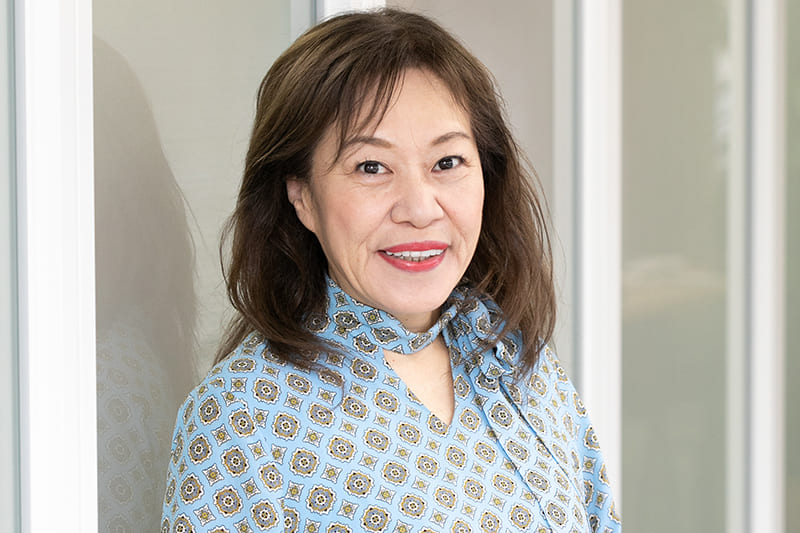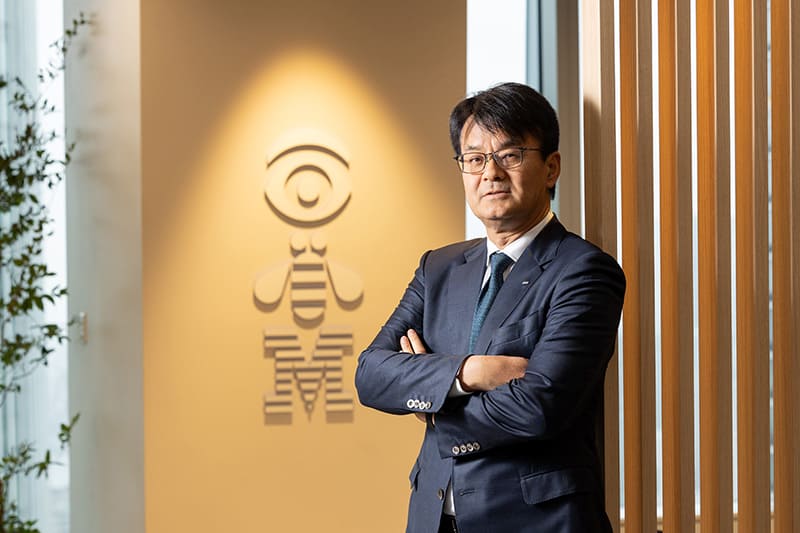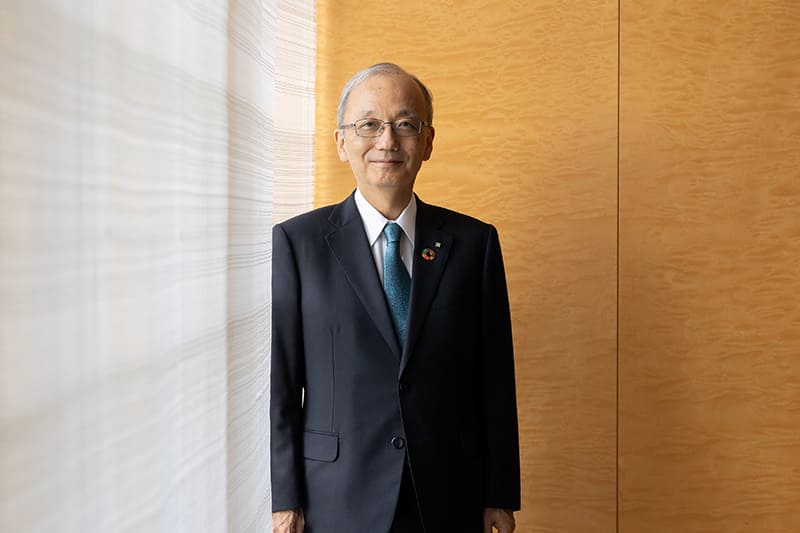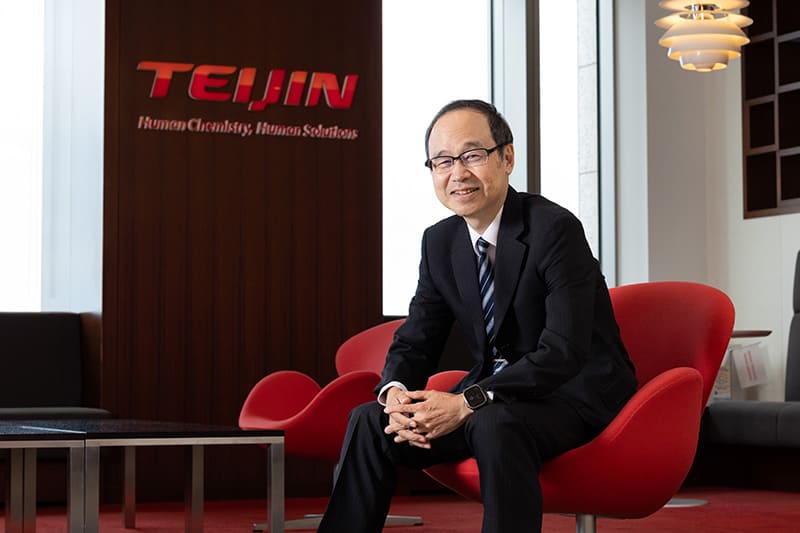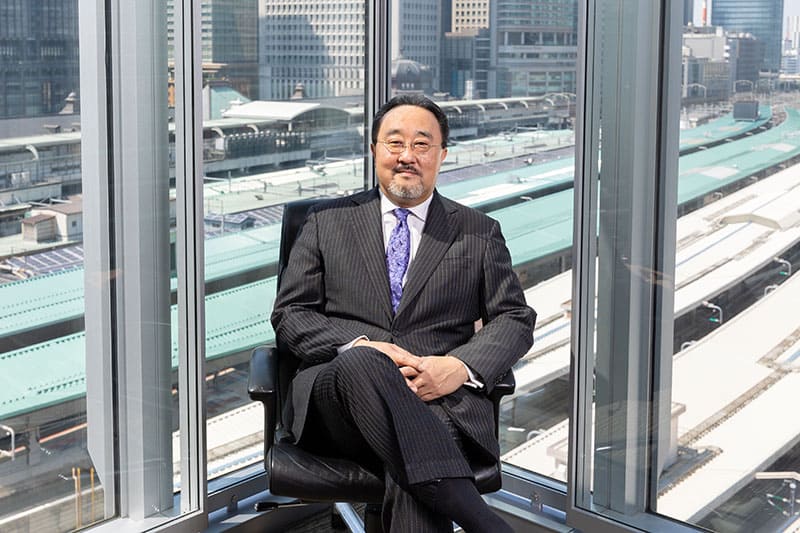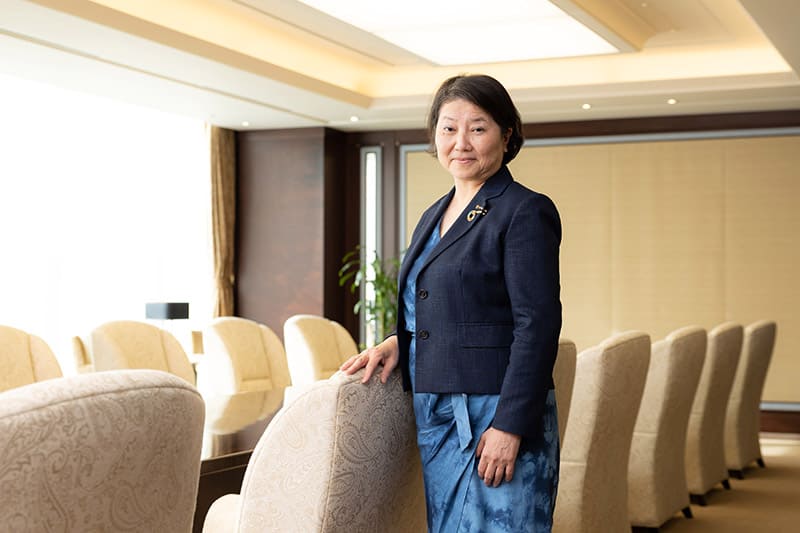September 22, 2025
Nippon Life insures and invests for sustainability
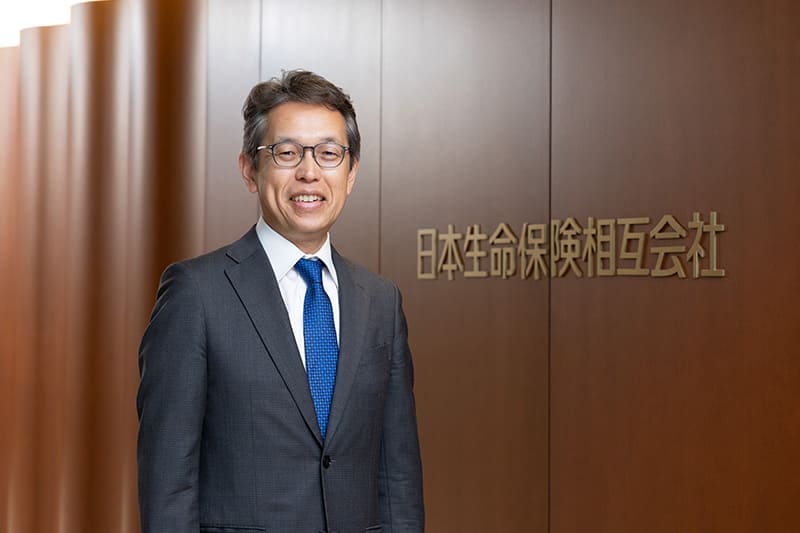
As global asset owners assume greater social responsibility, insurance companies are helping to advance sustainability in various ways. As businesses, their insurance services protect policyholders from adverse events. As investors, they wield influence over social issues by strategically investing premiums collected from policyholders.
“What’s unique about insurers is we have aspects of both a company and an institutional investor. It is remarkable that we can work toward sustainability in both ways,” Takeshi Kimura, a special adviser to the board for Nippon Life Insurance Co., said in a recent interview, part of a monthly series conducted by Naonori Kimura, a partner for the consulting firm Industrial Growth Platform Inc.
Kimura said there are three main domains where Nippon Life promotes sustainability through its business: people, community and the environment.
As for people, Kimura said, the insurer provides policies that help ease worries over possible financial risks and thus supports their well-being. For communities, it cooperates with local governments to encourage senior citizens to take precautionary steps to extend their healthy life spans, for example by getting periodic checkups for cancer.
He said, however, that as an institutional investor it can have a larger impact on social matters beyond what it can do through its services for financial and health support alone. “If we investors can encourage investee companies to address a broader range of social issues affecting their employees, consumers or communities, it would lead to better well-being of insurance policyholders,” he said.
He pointed to the possible magnitude of the impact, saying that Nippon Life’s policyholders total more than 10% of the country’s population. Many of them work for its investee companies, buy their products or live in communities where the companies or their suppliers are located, he said.
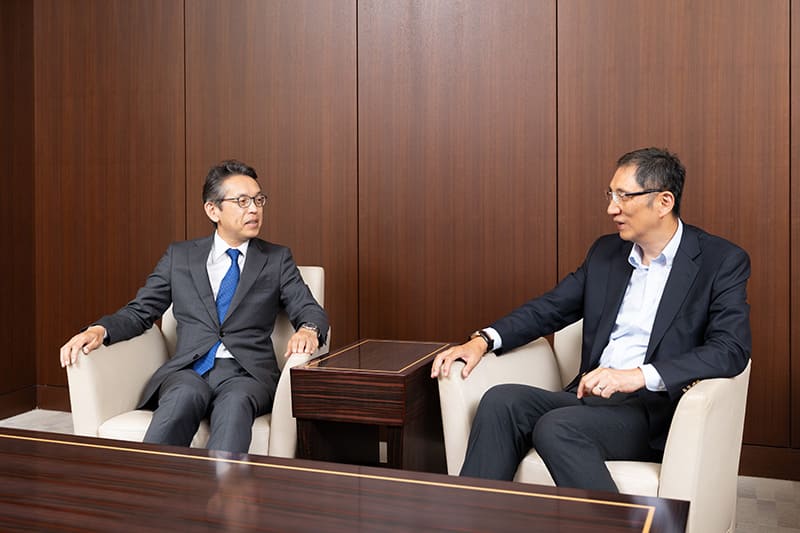
Kimura said focusing on people’s well-being is not only an ethical matter for corporations, but also leads to higher economic value, as it helps to raise productivity and eventually overall macroeconomic growth. “By focusing on financial materiality — the issues that impact corporate financial performance — as investors, we can also help our stakeholders achieve well-being,” he said.
Kimura emphasized that taking a long-term perspective is significant in order for top executives to make good business decisions and for institutional investors like insurers and pension funds to fulfill their fiduciary duty. If companies sacrifice stakeholders’ well-being amid intense competition to increase short-term profitability, such as by failing to provide a safe working environment or fair wages, this can contribute to higher job turnover and labor shortages while also hurting workplace morale and productivity. These factors may undermine corporate value in the long run.
The trend of focusing on people’s well-being will likely be accelerating following last September’s establishment of a global initiative, the Taskforce on Inequality and Social-related Financial Disclosures (TISFD), so that stakeholders of companies and financial institutions can assess if these organizations properly address social inequalities, including incomes, assets, health conditions, work environments, and skills and knowledge. Kimura said the TISFD plans to publish a beta framework in 2026 and a final version in 2027, becoming the third international disclosure standard framework, following the Taskforce on Climate-related Financial Disclosures (TCFD) and the Taskforce on Nature-related Financial Disclosures (TNFD).
“We can’t ignore system-level risks and opportunities in social issues. Investors should prioritize people’s well-being alongside climate change and biodiversity,” said Kimura, who is a member of the TISFD steering committee. He is also a member of the board of Principles for Responsible Investment (PRI), a U.N.-supported network of institutional investors. Responsible investment is an approach that takes environmental, social and governance factors into account.
Kimura also said asset owners are having second thoughts about their past strategies to promote sustainability. “Many of them are beginning to realize that a ‘silo-type’ approach focusing only on solutions to climate change has serious side effects,” he said.
For example, addressing climate change often induces “green inflation” — higher prices during the transition to net zero. In the past decade, countries have promoted zero carbon emissions to avoid fossil fuels, leading to price hikes in natural gas, which has a lower environmental impact than coal, along with copper, lithium and other metals necessary for producing renewable energy. “As a result, green inflation eats into the real buying power of those with low incomes, widening the inequality gap,” Kimura continued. “That in turn dampens the momentum of sustainability in society.”
“Investors recognize that developing a sustainable society is challenging unless you invest in strategies that consider people and the planet together,” he said.
Kimura said inequality is growing serious in Japan as well, although few people pay much attention to it. About 30% to 40% of households can’t afford some basics including food, housing, education and health care. “The fact that they cannot lead a basic life means it is a big issue for human rights,” he said.
“Given the overall situation, the social system has already become highly vulnerable to additional negative factors like rising prices,” he said.
Despite this, Kimura emphasized that Japan can still take the lead globally in addressing social challenges. He pointed to the traditional Japanese philosophy on social capital, which is deeply rooted in many companies and serves as the foundation for their business operations. One example is what happened after the Great East Japan Earthquake, he noted. Quite a few businesses worked to rebuild devastated factories in the northeast and protect employment. “Supporting local communities and maintaining the quality of public services ultimately leads to a long-term supply of high-quality talent, which benefits companies themselves,” Kimura said. Such actions and behaviors are commonplace for Japanese companies, but within the context of TISFD, they are likely to be highly valued in terms of financial materiality as “silent excellence.”
Naonori Kimura
Industrial Growth Platform Inc. (IGPI) Partner
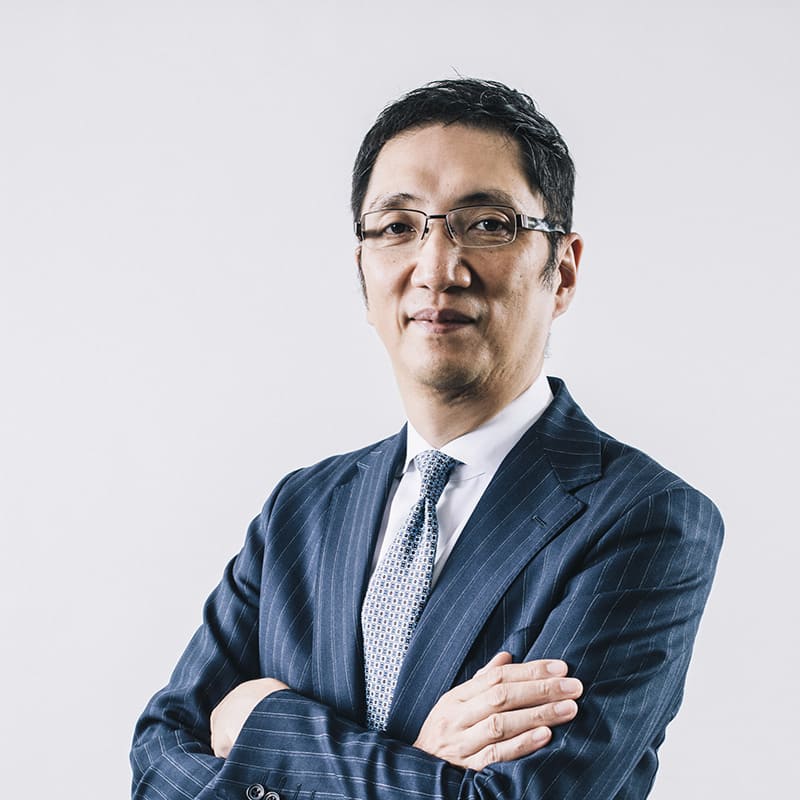
Nippon Life Insurance Co. promotes sustainable management with a long-term focus on people, community and the environment, leveraging its dual roles as an insurance company and an institutional investor. Its approach is characterized by integrating social and economic value through multilayered strategies such as financial support geared to the well-being of employees and policyholders, contributions to community health and strengthening investment in human capital.
Nippon Life participates in many international initiatives, one of which is the Taskforce on Inequality and Social-related Financial Disclosures (TISFD), and Kimura is a member of the initiative’s steering committee. It was impressive to see the emphasis on the perspective of “double materiality” (taking into account significant impacts as well as financial considerations) as well as a foundation for dialogue with investors and the building of trust in the capital market by exercising systems thinking that connects people and the planet to address system-level risks that arise from social issues. Kimura emphasizes the importance of viewing TISFD not as a new burden but as a strategic opportunity to visualize and transform the company’s earnest efforts into competitiveness on the international stage. This is particularly significant for Japanese companies, as it offers a unique opportunity to redefine their inherent “silent excellence” against international standards.

